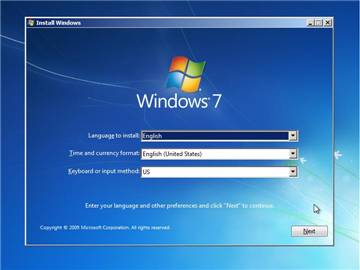Windows 7: The five things you need to be thinking about now

Even if you aren't planning to migrate just yet...
With the launch of Windows 7 just a week away, many businesses will already be thinking of how to shift their PC estate to the new OS.
According to analyst house Gartner, there are a number of issues companies should already be considering ahead of any planned switch - including the need to put an end to Windows XP.
The looming end of support for Windows XP will be the spur for many businesses to adopt Microsoft's latest OS, Gartner distinguished analyst Michael Silver said.

The end of support for Windows XP will see many businesses move to Windows 7
(Photo credit: Renai LeMay/ZDNet Australia)
"There are a lot of organisations that have a really hard time building a business case to replace client operating systems, so for a lot of organisations, while Windows 7 has lots of interesting features, a lot of organisations will rely more on the need to get Windows XP out than the need to bring Windows 7 in," he said.
Microsoft itself will keep issuing security fixes for the OS until 2014, but any businesses still on XP after that time will need to pay Microsoft for custom support.
In addition, independent software vendors will likely stop supporting XP far earlier, Gartner says, meaning businesses could find their business-critical software left unsupported if they leave it too long before migrating to Windows 7.
As such, the analyst recommends moving on from Windows XP by the end of 2012.
With that in mind, companies should get cracking on their migration project now, as most migrations will take 12 to 18 months of waiting, planning and testing before they start to go live, Gartner added. In the event that the move to Windows 7 is delayed, business will still find themselves with a cushion of some months before support is cut off.
The analyst also advises organisations should start their Windows 7 testing and deployments even if they don't plan to move until after the release of the first service pack.
Budget considerations should also be front of mind for CIOs - according to Gartner figures, moving from XP to Windows 7 could cost between $1,035 to $1,930 per user depending on how the rollout is managed, while costs for a migration from Vista to Windows 7 could range from $339 to $510 per user.
Gartner's final top tip is a simple one: don't skip Windows 7. While many organisations chose to bypass Vista, the analyst recommends not doing the same with Windows 7.
The five issues business should consider before adopting Windows 7
- Get ready to ditch XP by the end of 2012
- Begin migration projects now
- Don't wait until SP1 to start testing and deploying Windows 7
- Budget carefully
- Don't skip Windows 7